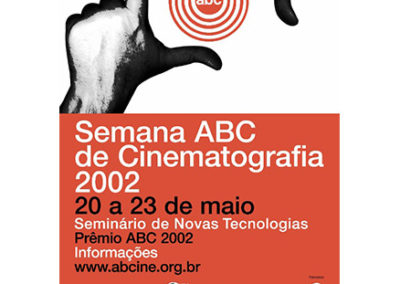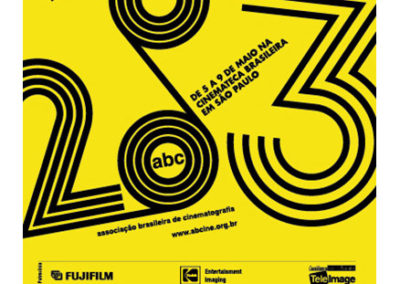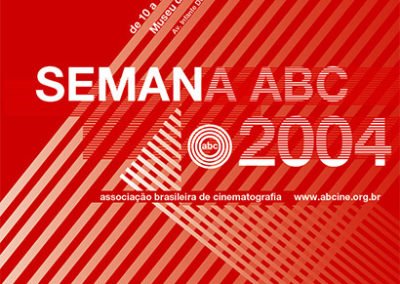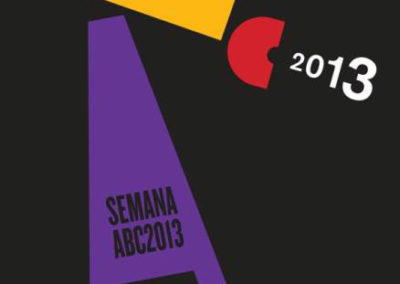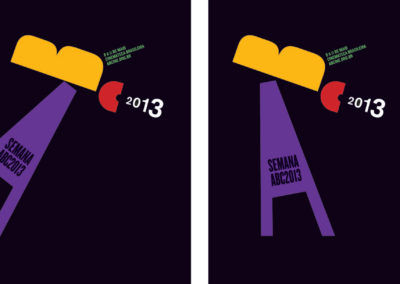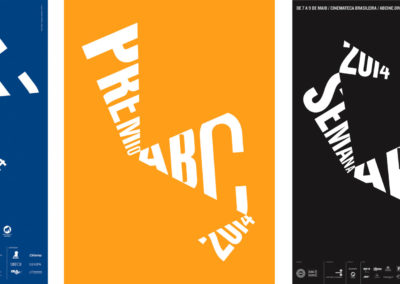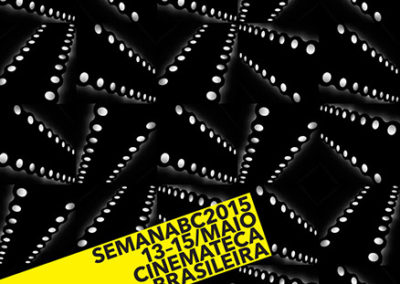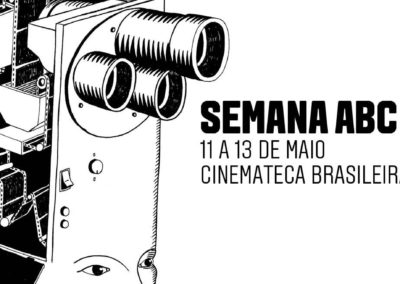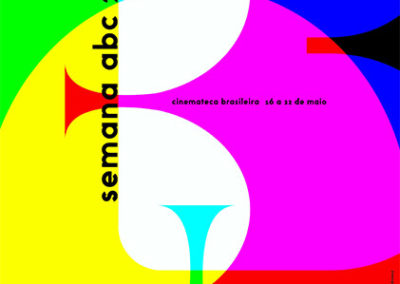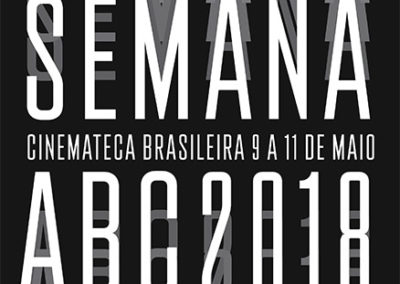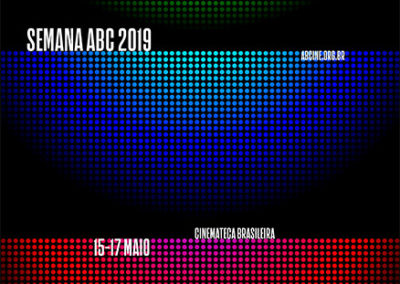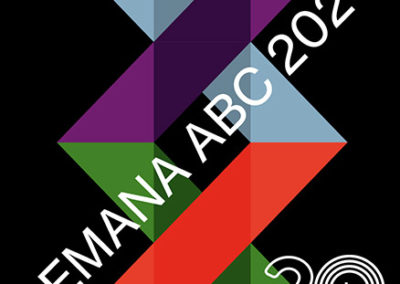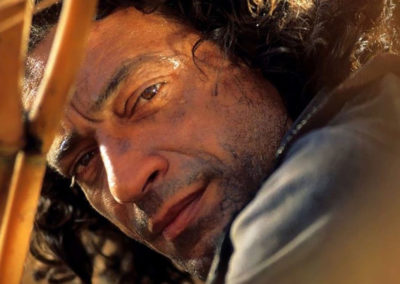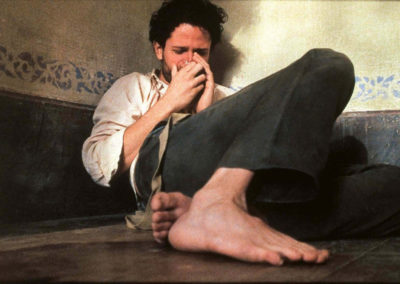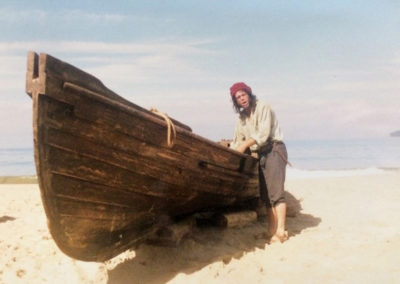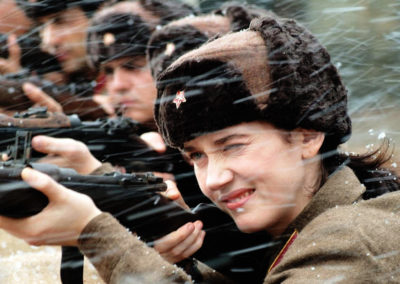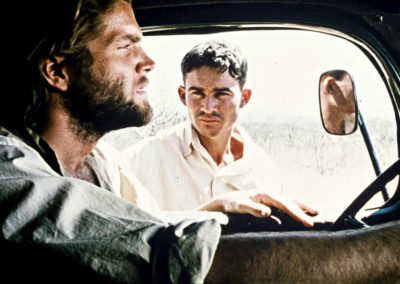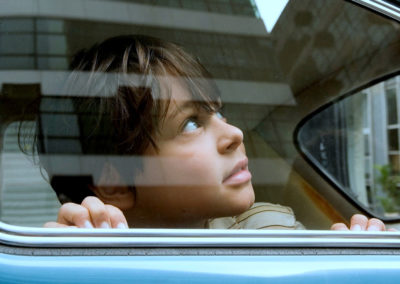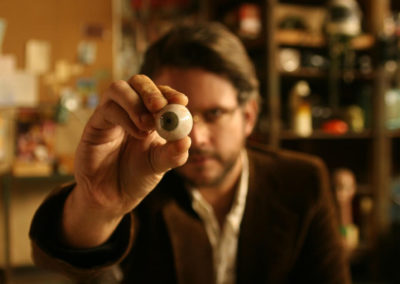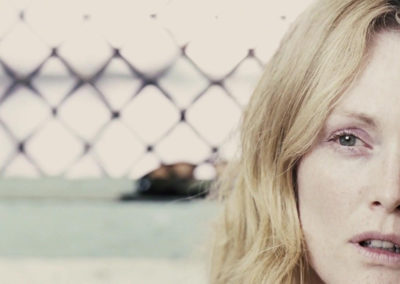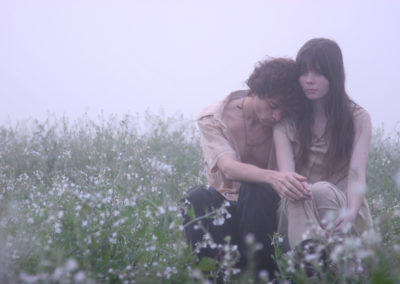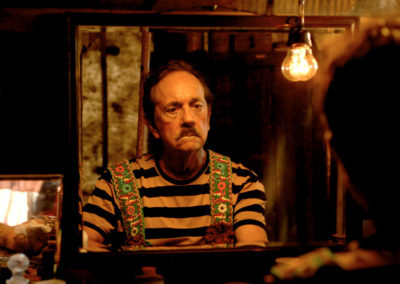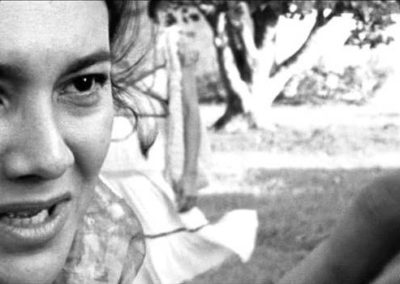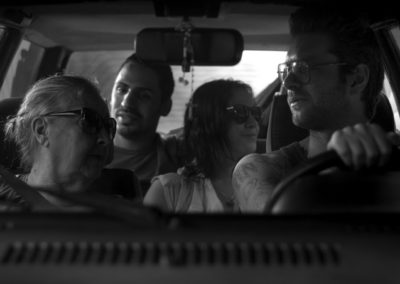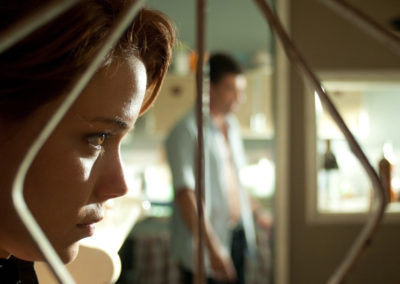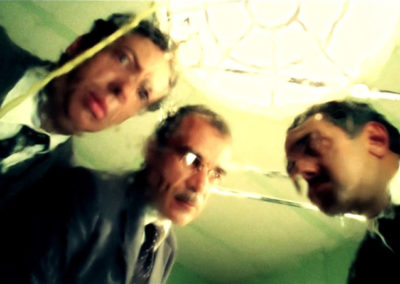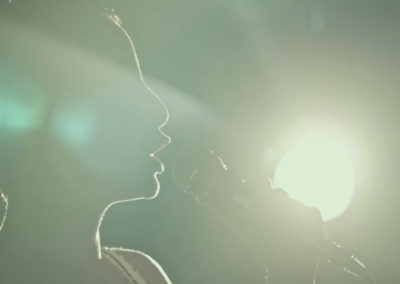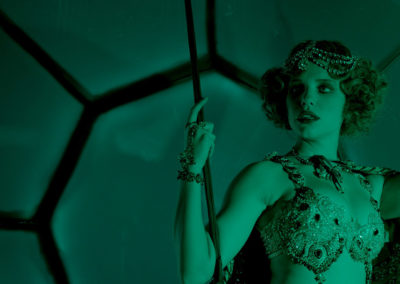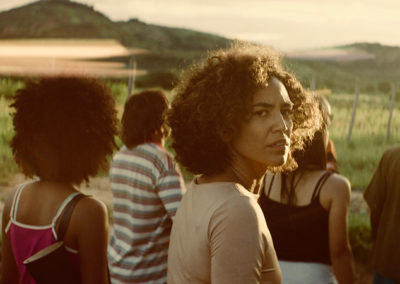Memories of Brazilian Cinematography
Perspectives on ABCIn preparation for the ABC 2021 Week & Award, we have gathered some memories of members and associates about the founding of the Associação Brasileira de Cinematografia and the creation of its two main events
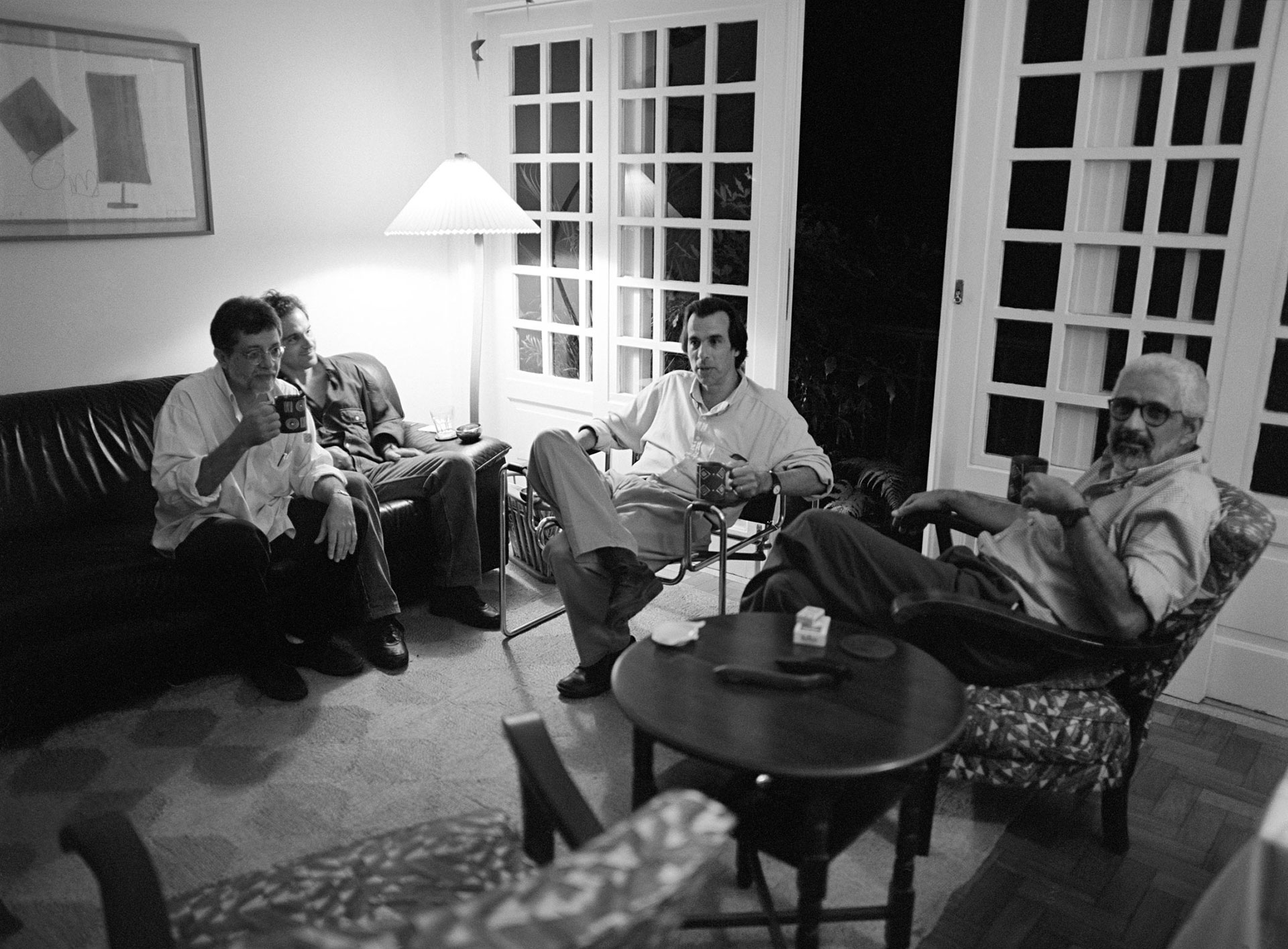
Meeting of the first attempt to create ABC, in 1977, in Cydno Silveira’s office. In the photo: Fernando Duarte, Gilberto Otero, Lauro Escorel, Edson Santos and sound technician Mario Silva. (Photo: Walter Carvalho)
ABC before ABC
By Danielle de Noronha
On January 2, 2021, the Brazilian Cinematography Association (Associação Brasileira de Cinematografia, ABC) turned 21 years old. Its history predates its foundation, as we will see in this article and it will help us to understand a little about the development of Brazilian cinema and audiovisual. Currently, there are more than 450 members, working in different areas of cinema, such as cinematography, art direction, sound, editing, coloring, conservation, restoration and teaching, with the presence of students, teachers and professors. Over the years, ABC has acted on different fronts in order to expand the technical and artistic improvement of the cinema produced in the country, as well as the improvement of relations between professionals and actions for a more plural and diverse production.
Today, after 21 years of transformation, ABC is associated with IMAGO (International Federation of Cinematographers), an entity that has its current treasurer director, Mustapha Barat, on the board, and FELAFC (Latin American Federation of Cinematographic Photography) which will be managed by ABC starting 2022. Through a series of activities, such as workshops and lectures, the exclusive forum for members, the website, social networks (Facebook, Instagram and YouTube) and Informe ABC, in addition to events such as the ABC Sessions, Prêmio ABC (ABC Awards) and Semana ABC (ABC Week) and ABC Cinema Workshops, the association seeks to act both to publish and to strengthen Brazilian cinema and audiovisual.
In this article, the result of conversations with partners held in recent years, we seek to bring a little of this history with a focus on the two main events of the association: Award and Semana ABC.
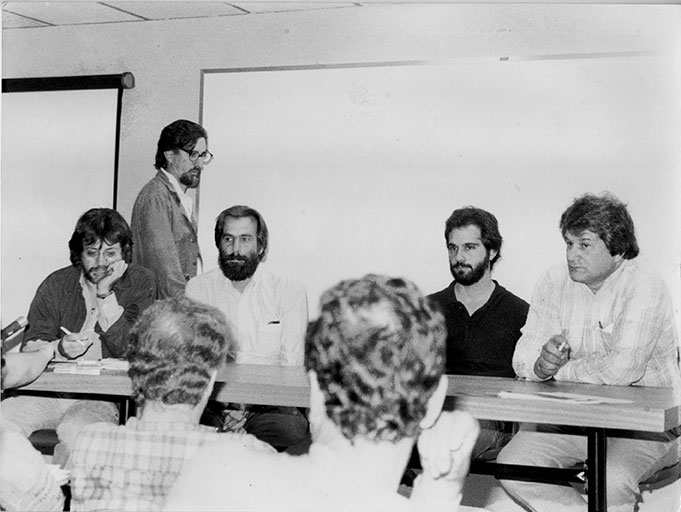
In 1989, a seminar at CTAV discusses the founding of the Brazilian Association of Cinema Technology (ABTC) and the need to create technical standards for the profession. At the table: Walter Carvalho, Affonso Beato, Lauro Escorel, Guy Gonçalves and Dr. Benedito Monteiro, from Laboratório Lider.
Virtual-real Space and
the Foundation of ABC
It was around 1995 that director of photography Walter Carvalho tells that he received an invitation to resume the project of an association of the class: “Lauro called a small group, in an attempt to resume the idea of the association, which we theoretically called an association, but that never materialized. He called about five people, I remember Antonio Luiz well, in a production company that no longer exists, in a house that was demolished at Pacheco Leão by a guy who called Frazão. We met there two or three times and after some time there were also some meetings at Lauro’s own house”, he says.
Although at that time the idea had not yet materialized, a short time later, in 1998, directors of photography Carlos Ebert and Hugo Kovensky sent an e-mail to a group of photographers that would finally result in the creation of ABC. Ebert reports that it was during an event held by Kodak Brasil, which in São Paulo was at Centro Cultural Vergueiro, that he had the idea of sending the e-mail that would result in the foundation of the association. “During the seminar, talking to Hugo Kovensky, I thought aloud: ‘Why don’t we take advantage of this new communication tool? Everyone in our area is connected to technology, practically everyone has the internet, why don’t we make an association, in the first instance, virtual?’ I thought that because the internet would eliminate our main difficulty: the physical meeting, which depended on the nature of our work. Kovensky thought the idea was good. There were also other colleagues present, whom I got the e-mail addresses from and I also had in mind especially Lauro and Affonso Beato. Kovensky and I first made an e-mail launching the suggestion, we sent it and there was a very good reception and the answers kept coming back”, remembers the cinematographer.
For Lauro Escorel, the e-mail they sent was in line with this desire of many years, which now saw the possibility of virtual existence. “As I recall, the email had 100% positive responses,” he said. People who received the first email recommended and invited professionals from all over the country to join the list that was beginning to grow and consolidate. To fulfill the desire to effectively found ABC and expand its operations to the real world, Escorel says that the next steps were to create the statute, elect the board and register the association. With the written statute and the elected board (with Carlos Ebert as president, Walter Carvalho as vice, Affonso Beato as secretary director and Renato Padovani as treasurer director), ABC was registered in 2000 and, in addition to the virtual space, started to act also in the “real” world.
Although it was initially designed to only aggregate professionals from the direction of photography, the need to include professionals from other areas of cinema was soon realized, which differentiates ABC from most associations of the department around the world. For the current president of the association, the sound technician Tide Borges, “nowadays, the exchange of information between the departments that carry out an audiovisual work is overvalued. One decision depends on others. ABC is a community in which this information circulates with greater speed and this is a very advanced form of organization. I think we have taken a step forward in relation to other associations”, she assesses.
The strengthening of this model was further reaffirmed with the election of the current board (biennium 7/2020 to 6/2022), which, in addition to Tide and Mustapha already mentioned, also has the director of photography Jacques Cheuiche as vice president and with director of photography Fernanda Tanaka as secretary director. Tide is the first professional not working in photography to assume the presidency of ABC, in addition to being the first woman to hold the position. The expansion of more representation from other areas, as well as the diversity of gender, race, sexuality and region, is one of the main projects of the current administration that has worked together with the Ethics Commission and the Inclusion Team to develop policies and changes that help in its consolidation, especially a proposal of a new statute for the association.
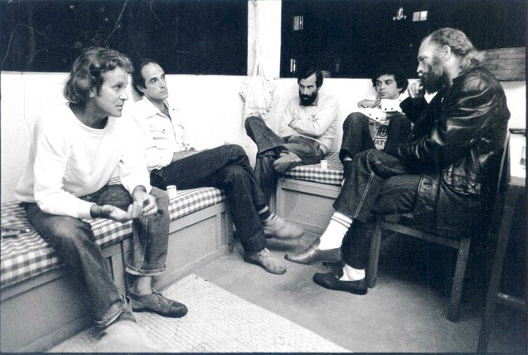
In 1995, meeting with Walter Carvalho, Antonio Luiz Mendes, Guy Gonçalves and Lauro Escorel in an attempt to think of a new way to found ABC. (Photo: Marina Mello e Souza)
Prêmio ABC:
20 years
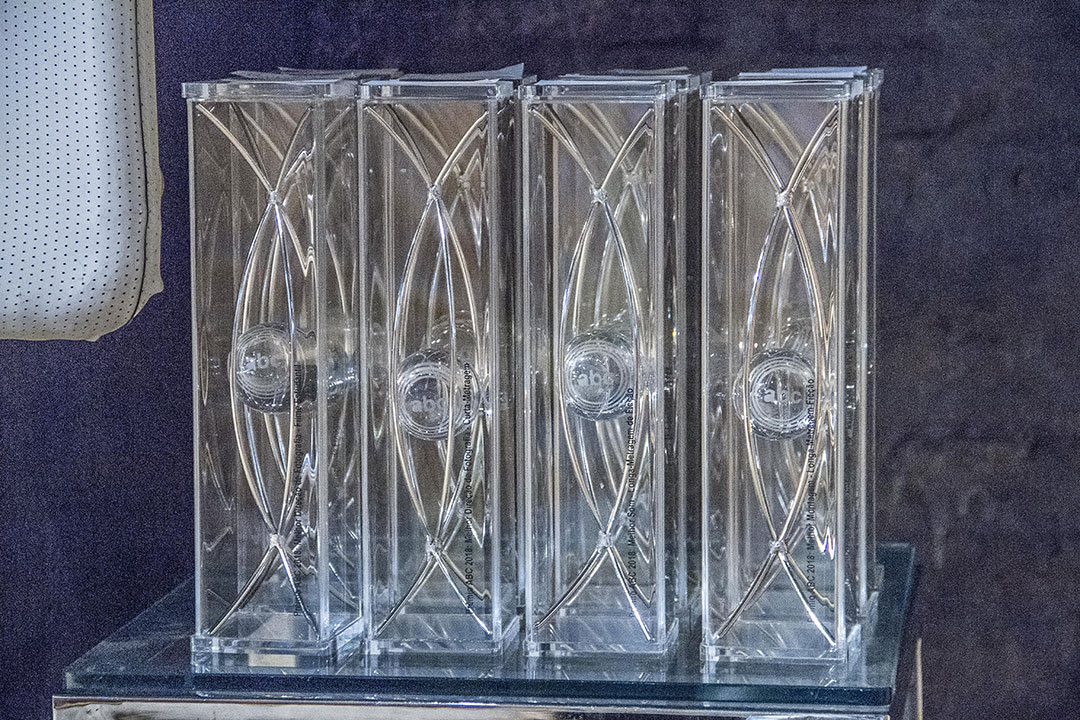
ABC Award trophies since the first edition by Charles Holmquist.
(Photo: Ricardo Alcará)
The creation and development of ABC sought to fulfill three main objectives, which to this day are still its main focuses: 1) training and exchange of experiences and information among professionals; 2) development of Brazilian cinema and audiovisual and 3) dissemination of cinematography to a wider audience, both nationally and internationally. And it is within this context that, in 2001, the Prêmio ABC (ABC Award) and, in the following year, the Semana ABC (ABC Week) were born. Lauro says that after the association’s first year, he felt the need to introduce ABC to the film community and suggested the creation of the Award as a way to build this dialogue beyond the association’s environment: “I remember that I wrote about it and people they loved the idea and started asking ‘who does it?’ And I replied, I do!”.
Lauro remembers that he went to talk to companies in the industry, such as Kodak, Fuji, Casablanca and Mega, to ask for support with the idea that they would offer the winners of each category a trip abroad: “When I got confirmation from the companies, the prize materialized. In addition to the idea, we have something to reward”. From there, he got involved in the event’s production. “It was a time when I was doing a lot of advertising and I started not making the films, I started leaving sets to take care of it. I got very involved and the one who welcomed me and helped was Solange Farkas from Videobrasil”, he says. Lauro also had the help of Francisco César Filho to publicize and the directors of photography Carlos Pacheco and Lúcio Kodato who, along with Lauro, have been involved in the production of the event in almost every year since then.
The first edition took place in the foyer of the Petrobras room at Cinemateca Brasileira, in São Paulo, and was presented by Marina Person. “I think it was the night that we had the most attendance of personalities from our activity, it worked out really well”, evaluates Escorel. The Award had five categories, all focused on cinematography, and awarded Breno Silveira (with the feature film “Eu, Tu, Eles”), Mauro Pinheiro Jr., ABC (with the short film “O Velho, O Mar e O Lago”), César Charlone, ABC, SCU (with the TV show “Palace II, Brava Gente Brasileira”) and Affonso Beato, ASC, ABC (with the music video “Pérola Negra” and the advertising film “Vento, Amyr Klink”).
The ceremony was also an opportunity to start a series of tributes to important professionals for cinematography in Brazil. In 2001, the first Prêmio ABC for the work was given to photographer Ricardo Aronovich, AFC, ABC, who came to Brazil with the support of ECA-USP and the French Consulate, through a contact that Lauro made with professor and editor Maria Dora Mourão. “The tribute was very beautiful. Ricardo didn’t know he would be honored. After it was all over he pulled me by the arm and said ‘don’t ever do something like that again, you can kill someone of a heart attack’”, said Escorel, between laughs.
For the cinematographer, the tributes are still an important moment in the awards. “It was a lot of emotional moments. A tribute that moved me a lot was the one we did for Dib Lutfi. I called all the directors of the Cinema Novo that he had worked with and said: ‘now is the time to pay tribute to your photographer’. I remember the image of several of them on stage applauding Dib and also Marieta Severo reading a text we wrote, it was very beautiful”. Another special tribute remembered by Escorel was for director of photography Ricardo Della Rosa, at the 2015s Prêmio ABC, who died prematurely in April of that year, in addition to technical awards, such as the one given to gaffer Jamelão in 2003.
Lauro believes that this first edition was essential for the film community to get to know ABC and it began its journey as an important institution for the development of Brazilian cinema and audiovisual. Silvia Gangemi, director of photography, adds that the award is also a great stimulus for the area, as it is an award evaluated by industry professionals, as the awarded works are chosen through voting by people associated with ABC. In this sense, for director of photography Taís Nardi, it is important to apply to compete for the award, as it is the moment when it is also possible to show your work to colleagues in the profession, which generates several possibilities for interesting dialogues and opportunities.
Over time, the Prêmio ABC was improving and including new categories to account for the plurality of professionals linked to the association and to the audiovisual market itself. This year’s edition, the largest ever, had 13 categories: Feature Film-Fiction Cinematography; Feature Film Documentary Cinematography; Feature Film Art Direction Fiction; Feature Film Editing Fiction; Documentary Feature Film Editing; Feature Film Sound Team (Fiction and Documentary); Short Film Cinematography; TV Series Cinematography; TV Series Art Direction; Sound Team TV Series; Music Video Cinematography; Advertising Film Cinematography; and Film Student Cinematography, in addition to bringing some changes to the voting process.
In the first round, the entries were evaluated by a jury of professionals who work in the same evaluated category. Subsequently, the seven works selected by these juries went to a second round, which had the vote of the other ABC partners. Tide Borges considers this change to be very positive, as it has both a more specialized look at each area covered by the categories and the participation of associated people. For her, the Prêmio ABC represents “the appreciation of the cinematography of professionals and of our narratives” and is one of the ways that the association has to support the cinema and audiovisual produced in the country. The five finalists and the winners of this 20th edition will be announced at the awards ceremony on October 17th. In Escorel’s words, regardless of who takes the trophy, designed by Charles Holmquist since the first edition, being among the finalists is already a great prize!
ABC Cinematography Week
Also as part of the goal of achieving the three objectives described above, the first Semana ABC took place in 2002. “When we started organizing the second Prêmio ABC, which would now take place in Rio de Janeiro, Affonso suggested that beyond continuing with the award event, we should also propose something related to the dissemination and sharing of experiences. And we incorporated the idea of the Semana ABC”, says Escorel. Beato adds that the inspiration came from an event he and Lauro attended in the United States, Cinematographer’s Day, organized by director of photography Luciano Tovoli, which became very popular at the Palm Springs Festival and brought together cinematography professionals from around the world.
Since then, Semana ABC has been incorporated into the audiovisual sector’s calendar as one of the important moments for exchanging knowledge and contact between professionals, students, companies and other institutions. Carlos Pacheco, current coordinator of the event, adds: “There was nothing like it in Brazil. Before, in order to discuss cinematography, we had to leave the country. There was no such space to discuss market issues, new technologies, new equipment. With the Week, ABC brought this into the Brazilian entertainment industry”.
The first edition took place at Instituto Moreira Salles, in Rio de Janeiro, and the Prêmio ABC ceremony was held at the Jockey Club Brasileiro. The 2002 Semana ABC program included panels on the relationship between cinematography and art direction, digital cinema, sound and post-production, themes that have always been present at the event ever since. For many years, the realization of the Week and Award was divided between Rio and São Paulo. The following year, in 2003, the Cinemateca Brasileira, as co-organizer, hosted the Semana ABC for the first time, in 2012 it became the official venue for this event.
Each year, the development of the Week and Award drew more attention from professionals, but also from companies and institutions linked to cinema and entertainment. In addition to the tables and lectures that have been held since the first editions, the event also started to promote the equipment and services fair, in which students and professionals can have access to new technologies. For Escorel, it is beautiful to see how the event and the award have grown and developed. He also reiterates that this is also due to the relationship with the supporting companies: “each support received generated and generates new support”, which are reflected in the quality of the programming that reinvents itself in each edition and seeks to bring current artistic and technical discussions about cinematography with the presence of national and international professionals.
On an article about the 20th anniversary of the association, director of photography Kika Cunha mentioned the event as the apex of ABC: “Each year there are more people participating, more employees, more companies showing their products and more big names giving lectures . I think ABC managed to establish itself as a training body for photographers and audiovisual people”. For her, and for most of the other people interviewed, the Semana ABC is one of the association’s main achievements, as it expands its strength of action both in relation to the market and education. In the words of director of photography Marcelo Trotta: “when we started making the Semana ABC, there was a leap to a place of recognition of excellence in the debate on trends and issues in the Brazilian audiovisual industry. We gained an educational vocation and today we organize a super professional and high level event, which is open to the public and has the support of sponsors and important entities. For us, this shows that there is great recognition of our staff and our activities”.
The director of photography Fernanda Tanaka, who is one of the event’s curators this year, also says that the Semana ABC events were an important part of her learning. “And evaluating the film community as a whole, I believe that, in addition to fostering technical discussions, bringing new technologies closer and faster, Semana ABC is unifying, where different professionals and students meet and exchange experiences, strengthening the area. Even giving visibility and worldwide insertion”, she says.
This question is also shared by Taís Nardi: “I’ve always kept up with Semana ABC since I was a student. I even wrote down everything I didn’t understand, to look it up later, but I think the event is mainly a meeting place”. As examples, the photographer lists two moments that occurred in the event that were important for her trajectory: the first is a panel on education where she rediscovered a teacher, which encouraged her to return to academia, do a master’s degree and, currently, a doctorate in which he studies poetics in the direction of photography at the Graduate Program in Audiovisual Media and Processes at ECA-USP. The second is the first panel on women in cinematography, in 2017, which made her reflect more on sexism and misogyny in audiovisual and helped position herself and recognize herself as a director of photography.
With experience in the world of theater, camera operator Nelson Kao was also able to develop part of his audiovisual training at Semana ABC, which also helped him open doors to the job market. In 2010, Kao started to help Lúcio Kodato in the production of the event, assembling equipment, operating cameras, among other functions. In addition to his various stories about the “behind the camera” of the event, he also remembers two moments in particular: the lectures with the director of photography John Bailey and José Murilo Carvalho, who at that time was the Coordinator of Digital Culture at the Ministry of Culture (MinC), which revealed the event’s concern in dealing not only specifically with cinematography, but with several other topics relevant to entertainment culture, adding new discussions and representatives.
For other areas of cinema, Semana ABC is also pointed out as an important moment of formation and exchange of experiences. As an example, art director Marcos Carvalheiro commented that the space that professionals in the field built and maintain within ABC was fundamental for the consolidation of the art direction profession: “I see as important milestones for our profession, here in Brazil, the Art Direction tables with important professionals of recognized international performance that we have carried out in the last 10 years at Semana ABC. These meetings ‘formed us and are shaping us’, as much of what we have advanced and have consolidated within the art department today is the result of these discussions that have been maturing us and opening up paths”.
Audience at ABC Week 2019. (Photo: Danielle de Noronha)
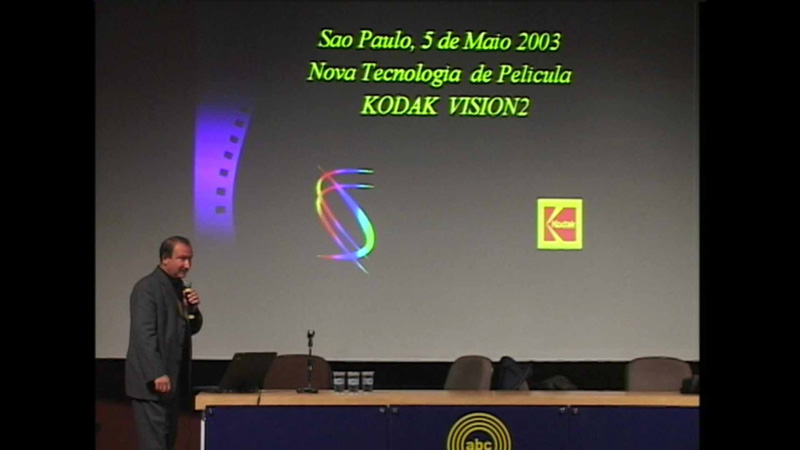
Kodak presentation at ABC Week 2003 at Cinemateca Brasileira.
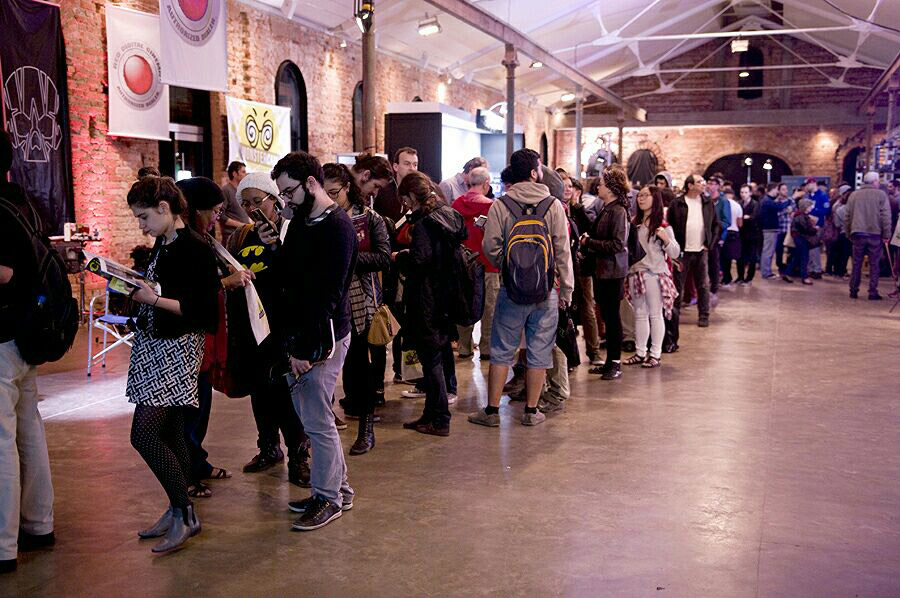
Audience at Semana ABC 2016 at Cinemateca Brasileira. (Photo: Mujica Saldanha)
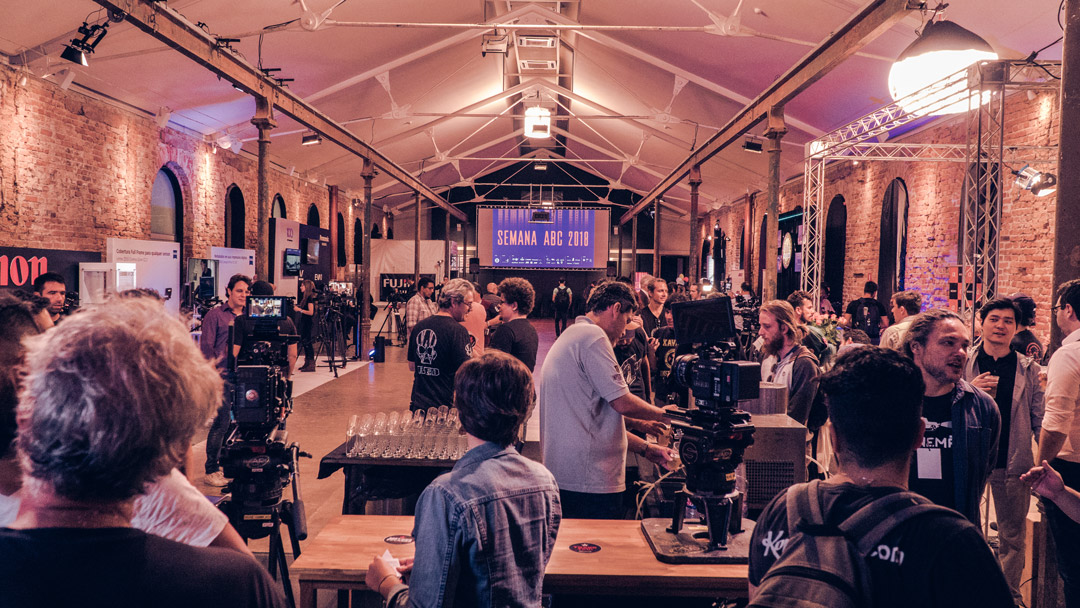
Exhibition of equipment and services at ABC Week 2018. (Photo: Rodrigo Espíndola)
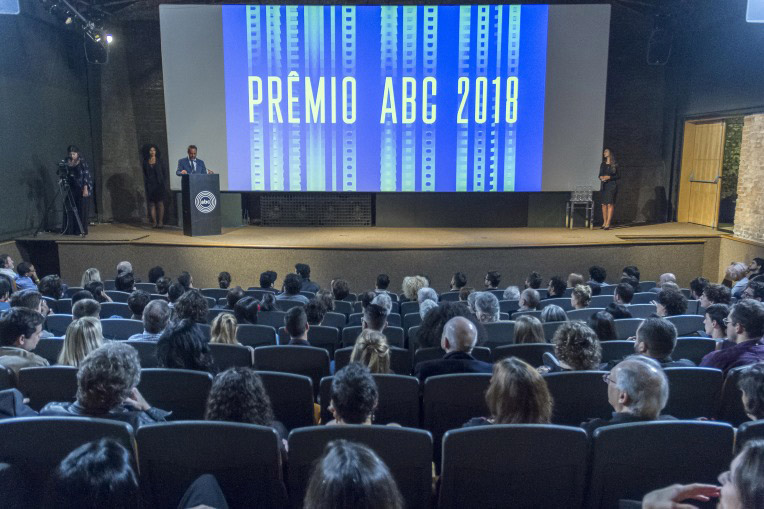
ABC 2018 Award Ceremony. (Photo: Ricardo Alcará)
WINNERS OF THE 2001-2020 PRÊMIO ABC
Best Fiction Feature Film Cinematography
2006 – Cinema, Aspirinas e Urubus / Mauro Pinheiro Jr.
2006 – Cinema, Aspirinas e Urubus / Mauro Pinheiro Jr.
2007 – O Ano em que Meus Pais Saíram de Férias / Adriano Goldman
2007 – O Ano em que Meus Pais Saíram de Férias / Adriano Goldman
2011 – Os Famosos e os Duendes da Morte / Mauro Pinheiro Jr.
2011 – Os Famosos e os Duendes da Morte / Mauro Pinheiro Jr.
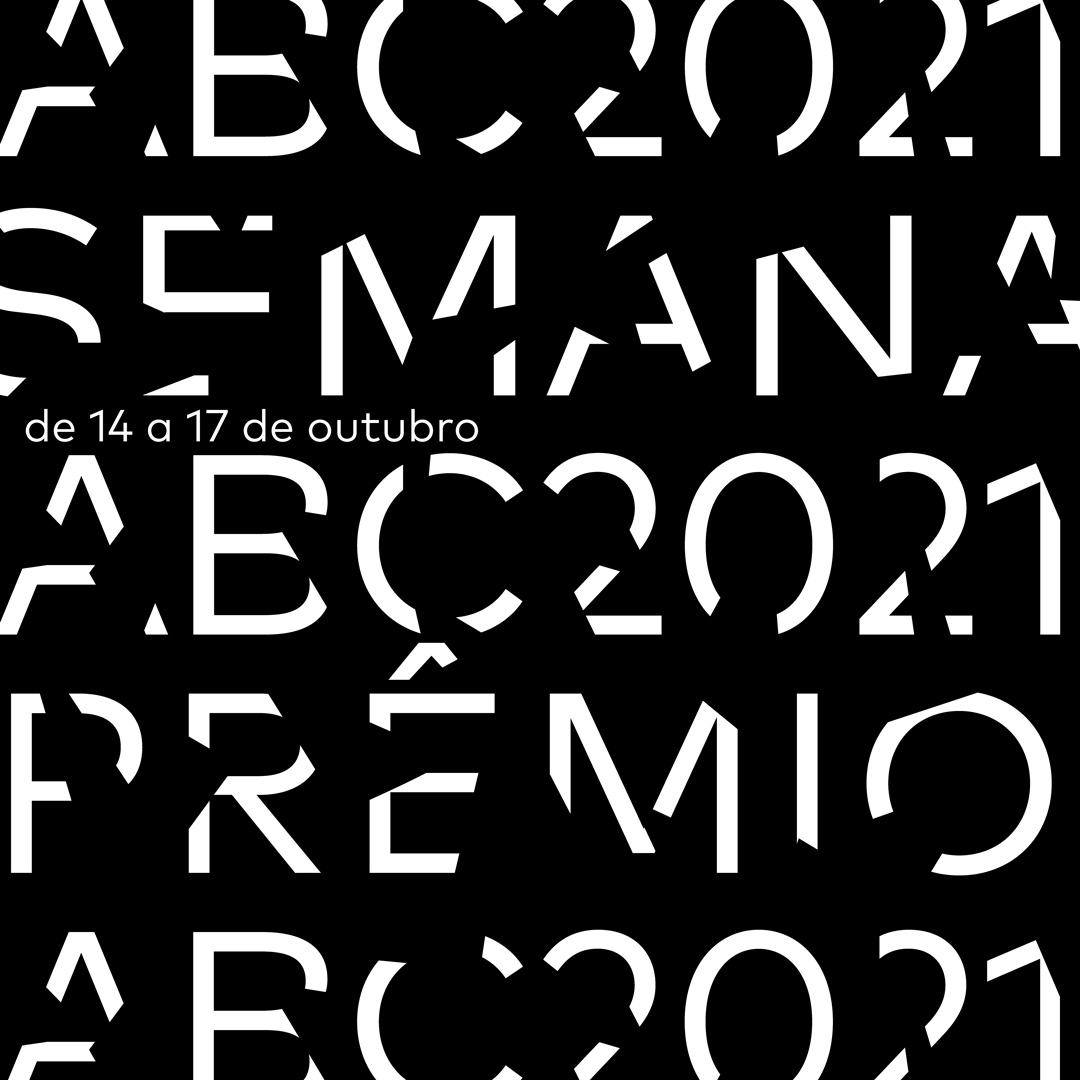
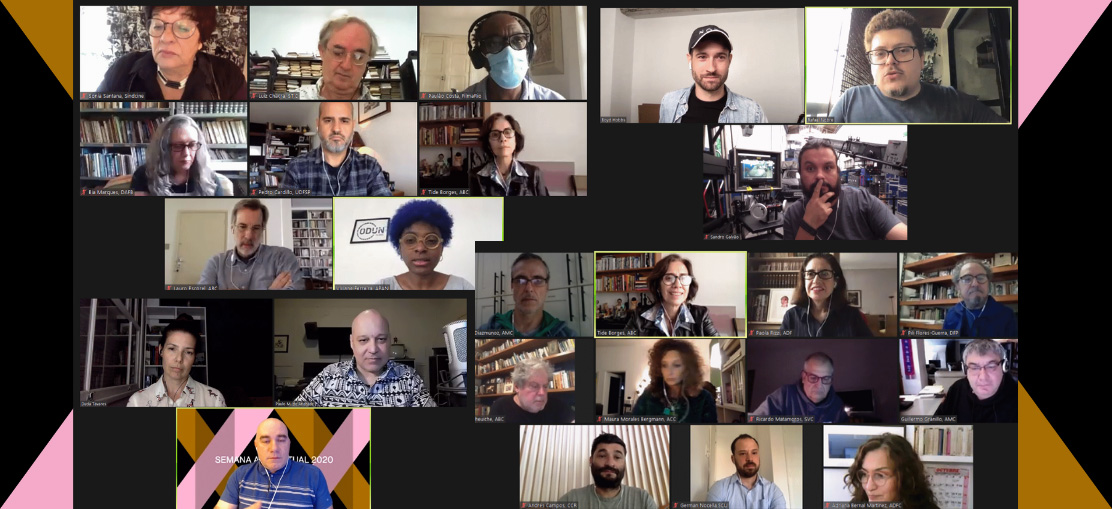
Assembly with the tables that took place on October 18 at the ABC Virtual 2020 Week.
ABC Virtual Week
& Award 2021
In 2020, ABC was preparing a special edition of the Semana e Prêmio in commemoration of its 20th anniversary. With the Covid-19 pandemic, the plans underwent changes, but the essence was maintained and the proposal was expanded: there were 20 tables, during six days of the event, broadcast online and live, which dealt with topics such as the audiovisual market in the past of pandemic, the current crisis imposed on the Cinemateca Brasileira, women in art direction, the Latin American cinematography associations, among others. Despite being a challenge, holding the online event was an important form of resistance to the context in which cinema and audiovisual and industry professionals find themselves, affected both by the current government’s cultural (anti)policy and by the interruption of production due to the pandemic. In addition, for Tide, the event also helped to raise morale and unity within ABC: “It was a moment when we were able to support each other by being present. Showing works, showing that we were alive, resistant and resilient. To value ourselves. It was a very big effort, not only to the board, but to the entire association. And it was really cool to see that we managed to share this positive feedback to our community”.
In 2021, with that same strength, the event will continue in virtual format and will take place from October 14th to 17th, broadcasted on YouTube. The Semana and Prêmio ABC 2021 visual identity represents the main objective of this year’s event: to show that Brazilian cinema is still alive! In the words of Kiko Farkas, creator of the proposal: “For some time now, Brazilian cinema has been suffering systematic attacks from all sides. There is a clear desire to dismantle what was built with enormous effort for a long time. But the sector is strong and resilient, and despite several attempts to dismantle it, it reinvents itself. With dedication it recomposes itself. The identity of the Semana this year mentions this reconstruction process. Pieces are missing, there are scars… but we are standing. We resist”.
Tide shares that the program will seek to take advantage of the possibilities that the remote presents and will try to expand the diversity of themes and guests, both nationally and internationally. There will be tables in partnership with IMAGO and FELAFC, in addition to the traditional ones on cinematography, art direction, editing, finishing, teaching and sound and presentations by sponsoring companies such as SP Cine, Arri and Canon. “We are also organizing a table to talk about affirmative policies and Brazilian audiovisual industry, among other things”, he says. “We are very excited about this year’s events. It was an intense work for all the selection committees, in which we involved many, many associates, both in the Prêmio and at the panels of the Semana. So it’s a moment of great joy. And we owe this joy also to our community”, adds Tide. The full schedule will be released soon.
On the ABC website, it is possible to check the finalists and winners of all editions of the ABC Award, in addition to the programming of past editions of ABC Week, which are mostly available in full on the association’s YouTube channel. Access to these panels and lectures, in addition to contributing to the training of professionals from different areas of the sector, also helps in the construction of the memory of our cinema and audiovisual, in which we can follow through the themes, focuses, equipment and examples the aesthetic, technical, social and political transformations that the production and reproduction of images and sounds constantly experience.

